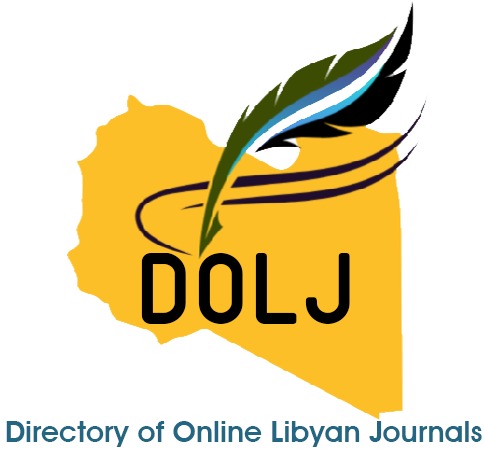Integration of Social and Behavioral Sciences (SBS) in Undergraduate Libyan Medical Education Programs
- Authors
-
-
Salem Elfard
Department of Software Engineering, Faculty of Information Technology, University of Zawia, Zawia City, Libya.Author -
Zinab Elfituri
Department of Physiology, Faculty of Medicine, University of Zawia, Zawia City, Libya.Author
-
- Keywords:
- Social and Behavioral Sciences, Undergraduate, Medical Education.
- Abstract
-
Human health is influenced by multiple interacting biological, psychological, sociocultural, economic, and behavioral factors. Research in behavioral and social sciences informs physicians' approaches to prevention, diagnosis, and patient care. Competent physicians, therefore, require knowledge of society and human behavior to develop essential communication skills, professional conduct, self-awareness, ethical reasoning, and cultural understanding. Consequently, these Social and Behavioral sciences are integral to medical training. This cross-sectional study examines the current state of Social and Behavioral Sciences integration in Libyan medical education programs through a survey of 105 faculty members, curriculum developers, and administrators. Findings reveal strong recognition of SBS importance (84.6% rated it "very important"), yet inconsistencies in curriculum implementation, with 27.9% reporting no formal SBS inclusion. Teaching methods remain lecture-dominated (77.9%), and key challenges include insufficient faculty expertise (59.6%) and curriculum time constraints (40.4%). The study recommended the early curricular integration, faculty development, and enhanced experiential learning.
- References
- Cover Image
-

- Downloads
- Published
- 2025-07-14
- Issue
- Volume 1, Issue 3, 2025
- Section
- Articles
How to Cite
Similar Articles
- Hasna Akub, Tawfeek Altawaty, Aun Youis, Seroprevalence of Human Immunodeficiency Virus Infection and Demographic Correlates among Individuals Tested in Al-Jabal Al-Akhdar, Eastern Libya: A Cross-Sectional Laboratory-Based Study , Razi Medical Journal: Volume 1, Issue 4, 2025
- Faiza Nouh, Salima Elfagi, Mohamed Buzqeia, Ahlam Adel, Mawadda salah, Enas Hassan, Safa Edress, Determinants of Food Choices in University Cafeterias: A Cross-Sectional Study Among Public Health Students in Libya , Razi Medical Journal: Volume 1, Issue 4, 2025
- Ahmed Alsharksi, Abdalla Ali, Adam Mustapha, Clostridium difficile A-B Toxins as a Cause of Diarrheal Disease: Data from a University Hospital in Northern Cyprus , Razi Medical Journal: Volume 1, Issue 4, 2025
- Mariam Alqasser, Stroke Incidence and Risk Profile in Misrata City: A Retrospective Cross-Sectional Hospital-Based Study from Emergency Medical Records (2019–2020) , Razi Medical Journal: Volume 1, Issue 4, 2025
- Abulgasem Dakhil, Mohamed Abuagela, Abdul Aty Dakhil, Wasim Elarbi, Aisha Elansari, Evaluation of Uterine Fibroids Among Women in Tripoli , Razi Medical Journal: Volume 1, Issue 2, 2025
- Ahmed Atia, Mohamed Elfagieh, Razi Medical Journal: Launching a New Journal and Call for Paper , Razi Medical Journal: Volume 1, Issue 1, 2025
- Ali Madour, Haleemah Abdulrahman, Amani Alkawash, Rayan Alforgani, Saja Alzowaghi, Manal Alklabi, Eanas Elmaihub, Evaluation of Knowledge and Practice Toward Cystic Fibrosis Disease Among Medical Students and the Residents of Western Libya , Razi Medical Journal: Volume 1, Issue 3, 2025
- Sara Fathi, Heba Hassan, Laila Alfageih, Prevalence of Carbapenem-Resistant Enterobacteriaceae Isolated from Clinical Samples in Medical Tobruk Center , Razi Medical Journal: Volume 1, Issue 3, 2025
- Ahmed Aniba, Mustafa El-ahmar, Omar Danfour, Fathe Abulifa, Mona Abujazia, Mohammed Elfagieh, Integrated Surgical and Anesthetic Management of Pediatric Small Bowel Obstruction Due to Foreign Body Ingestion: A Comparative Case Series on Anatomical and Perioperative Implications , Razi Medical Journal: Volume 1, Issue 4, 2025
- Adell Abubakeer, Nabel Mansour, The Association Between ABO and Rhesus Blood Groups and Diabetes Mellitus in Libya: A Systematic Review of National Evidence , Razi Medical Journal: Volume 1, Issue 3, 2025
You may also start an advanced similarity search for this article.








